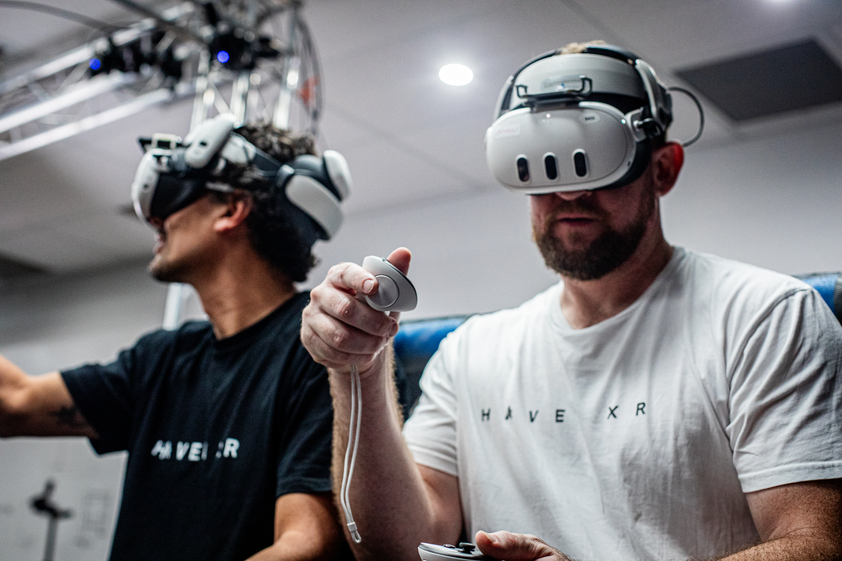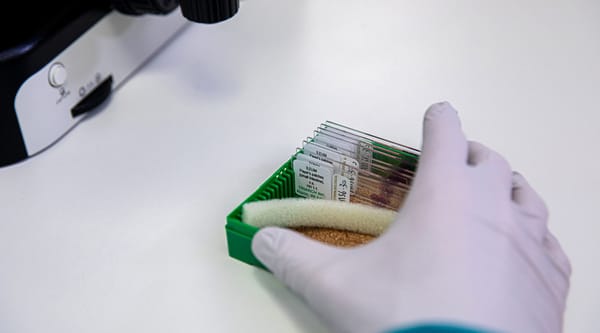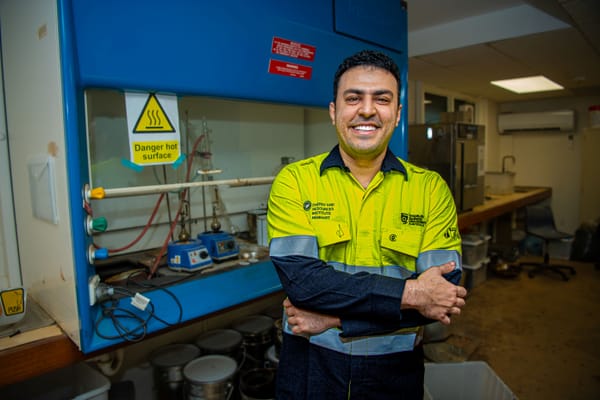Design students fast-tracked into $80 billion industry via on-campus studio
A global virtual reality design studio based on-campus at the University of the Sunshine Coast is now fast-tracking students into an $80 billion industry.

First published on University of the Sunshine Coast
By Janelle Kirkland
World class digital experts HavenXR are now working alongside UniSC students to design and develop software and hardware for the latest in extended reality.
Extended reality, or XR, is an immersive cinematic experience that is a blend of physical and virtual worlds, where users can see, touch, smell, hear, and change the virtual realm in their headset.

HavenXR CEO Tracy Whitelaw said supporting new talent into a rapidly growing industry was critical to their growth strategy to break into Asia-Pacific and US market, and to position the Sunshine Coast as a global centre for digital culture.
“This partnership with UniSC provides the perfect environment to incubate design talent from here and overseas,” Ms Whitelaw said.
“We want to hire from the local area, develop talent through UniSC, and relocate world-class experts to the Sunshine Coast, all the while keeping the central hub at the University.
“To encourage this, we are co-designing with UniSC and embedding industry experts to teach in the undergraduate programs.
“And to foster innovation, we are developing research to explore the design of ethical technologies and virtual experiences in healthcare, the future of entertainment, and the role of virtual reality in global conservation.”

“We are looking to build XR experiences that will allow global audiences to explore ecosystems of our local UNESCO-recognised Biosphere Reserves, and this could include swimming with migrating humpback whales along K'gari or walking with Kabi Kabi Elders through the rainforests of the Sunshine Coast."
Two UniSC Design students who transitioned directly into paid roles with HavenXR are helping deliver the studio’s first major product that will be launched in Malaysia in September for the Sim Leisure Group, which is building HavenXR experiences at shopping malls across Asia.
Liam McMichael, who has designed 3D-printed clips and devices that allow sensors to locate the user in the virtual environment, is one of those students.
“When I first started studying Design, I never thought this was what I would be doing in my third year, but I’m very comfortable now going straight into a career,” Liam said.
He benefited from the studio’s close proximity to UniSC’s Maker Space, the first MIT FabLab in Queensland that provides access to advanced technologies for community and industry.
“It’s a very cutting-edge environment. I can work and problem-solve with the HavenXR team and then 3D print and see my work almost immediately, rather than just seeing it on a computer screen,” Liam said.
HavenXR moved to Australia from Hollywood in 2022, partnering almost immediately with UniSC to establish the Sunshine Coast as a research and development leader in the industry.
The installation of an international broadband submarine cable to the Sunshine Coast was crucial to the move, as well as support from the Sunshine Coast Council and existing relationships with Design leader Dr Leah Barclay from the School of Business and Creative Industries.
“This studio partnership directly aligns with the Sunshine Coast's desire to establish a national centre for immersive reality to lead the region into the next revolution in technology-enabled experiences,” Dr Barclay said.
UniSC Pro Vice-Chancellor (Global and Engagement) Alex Elibank Murray, said the partnership was reimagining how research and industry could work together to fast-track outcomes for students.
“HavenXR works with world-leaders and experts, so this is an exceptional opportunity for our students to have work-integrated learning opportunities scaffolded throughout their degree."
And the opportunities were not limited to the entertainment industry, she said.
“The concepts applied here could apply to health, medicine, training and engineering among other things. Students are building a solid skillset for an increasingly digital future.”





